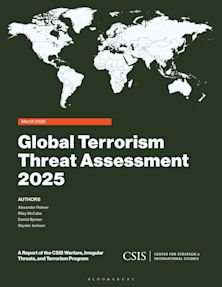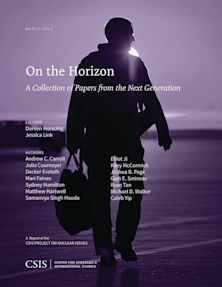- Home
- ACADEMIC
- Politics & International Relations
- Security and Strategic Studies
- The Future of National Intelligence
The Future of National Intelligence
How Emerging Technologies Reshape Intelligence Communities
The Future of National Intelligence
How Emerging Technologies Reshape Intelligence Communities
You must sign in to add this item to your wishlist. Please sign in or create an account
Description
National intelligence agencies have long adjusted to the opportunities and threats from new technologies, and have created structures, concepts, and practices to best apply new capabilities. But such recent technological developments as artificial intelligence are different in kind. Increasingly affordable to nongovernmental actors, they are powerful enough to overwhelm and marginalize much of what agencies do. In The Future of National Intelligence: How Emerging Technologies Reshape Intelligence Communities, Shay Hershkovitz argues that only with a new paradigm can these agencies take up this fundamentally new technological challenge.
Table of Contents
Chapter 1: Intelligence and Technology in Historical Context
Chapter 2: Emerging Threats
Chapter 3: The Technological Challenge to Intelligence Agencies
Chapter 4: Emerging Technologies and the National Intelligence Enterprise
Chapter 5: Intelligence Professionals and Decisionmakers – a Collaborative Approach
Chapter 6: Opening the Closed Intelligence System
Chapter 7: Intelligence and Civic Engagement: Emphasizing Collaboration
Chapter 8: TEMPINT - A New Intelligence Paradigm
Chapter 9: Intelligence in the time of Corona
Chapter 10: The 5c’s of Intelligence Transformation
Notes
About the Author
Product details
| Published | Oct 15 2022 |
|---|---|
| Format | Ebook (PDF) |
| Edition | 1st |
| Extent | 188 |
| ISBN | 9798881880187 |
| Imprint | Rowman & Littlefield Publishers |
| Series | Security and Professional Intelligence Education Series |
| Publisher | Bloomsbury Publishing |
About the contributors
Reviews
-
Dr. Hershkovitz has produced one of the best ‘future of intelligence’ books that I have read. He insightfully assesses the current state of national intelligence and offers achievable prescriptions for moving forward. Hershkovitz’s book comes at an important time because, as he notes, intelligence is at a historical crossroads. The decisions made by intelligence leaders today will have consequences for decades, and this book should be their guide.
Michael Morell, Former Deputy Director and Acting Director, CIA
-
As technology continues to advance, government officials and scholars around the world are struggling to understand and evaluate national intelligence. Dr. Hershkovitz’s book provides us with a sophisticated way of understanding how technology impacts intelligence, thus enabling strategists to design the transformation of intelligence systems in a way that harnesses technology effectively. Hershkovitz makes a significant contribution to our understanding on what is perhaps the most important challenge facing many national intelligence systems: how to ensure that governments use technology effectively to develop the knowledge needed to make the best decisions.
Stephen Marrin, Editor, Intelligence and National Security
-
This pioneering book comes at the right moment. We live in the Age of Information, dominated by computer technologies. Hershkovitz offers a clear and insightful analysis of the impact of these new technologies on national intelligence. A must read for current analysts.
Isaac Ben Israel, Tel Aviv University professor, Chairperson of the Israel Space Agency and of Israel National Council for R&D
-
Hershkovitz is an experienced intelligence expert who deeply understands the implications of new technologies on national intelligence. In his illuminating book, he proposes important principles as a compass to navigate in the intelligence world to meet the challenges.
Moshe “Bogie” Ya'alon, Former Israeli Defense Minister and Former Chief of Staff of the Israel Defense Forces
-
Although a year old, the book deserves current attention as the IC seeks to implement the new National Intelligence Strategy, learn lessons from the Ukraine war, and prepare itself for technologic changes and geopolitical threats posed mostly by a rising China. Hershkovitz is hardly the first to state the concerns so starkly. As the pace and breadth of the digital revolution became manifest over the past several years, thinktanks, scholars and public officials have all sounded the alarm about the looming deficiencies in our IC.
The Cipher Brief

ONLINE RESOURCES
Bloomsbury Collections
This book is available on Bloomsbury Collections where your library has access.



































